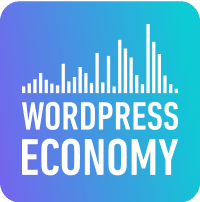In Support Of An Open Internet
 On Monday, January 14, vital portions of the Federal Communications Commission’s (FCC’s) Open Internet rules were struck down in the U.S. Court of Appeals for the District of Columbia Circuit. The rules were put in place in 2010 to preserve net neutrality, meaning that all Internet traffic had to be treated equally.
On Monday, January 14, vital portions of the Federal Communications Commission’s (FCC’s) Open Internet rules were struck down in the U.S. Court of Appeals for the District of Columbia Circuit. The rules were put in place in 2010 to preserve net neutrality, meaning that all Internet traffic had to be treated equally.
Verizon challenged these rules, arguing that the FCC lacked the authority to impose such rules and that the rules thwarted its First Amendment rights. The Court ruled 2-1 that the FCC based the rules on a flawed legal argument, despite the fact that they have the authority to regulate broadband access.
The ruling means that Internet providers are now free to charge companies for preferential access, which obviously benefits those that can afford to pay the most. As explained by Keith Wagstaff on NBC News:
Now, the door is open for companies like AT&T, Verizon, Sprint and T-Mobile to create a tiered Internet, where those who can pay the most can utilize the fastest connections, while others are stuck transmitting information at slower speeds.
In addition, Internet providers can now, in theory, block traffic arbitrarily. Verizon assured customers that it would not block content following the ruling, but left open the possibility of preferential access for particular services.
While we acknowledge that the Court’s ruling could possibly encourage innovation by content providers, we are concerned that the ruling risks the openness of the Internet, which has been a defining characteristic of the web since it came into being.
Harvey Anderson of Mozilla cautioned that the Court’s decision is alarming for Internet users because it will also provide broadband operators the legal ability to block any service they choose. Anderson said that this undermines a “free and unbiased Internet.”
The ability for Internet providers to sell preferential access to their networks might also mean that “new services might get snuffed out by bigger, more established companies before the startups have a chance to succeed.” As a startup ourselves, we at WP Engine worry about this possibility and how it might affect other growing businesses and potentially stifle future innovation. We also worry about risks to the availability and deliverability of all our client’s sites to any internet user.
WP Engine is built on WordPress, the largest open-source content management system on the web, which was built to democratize publishing. The openness of WordPress has, over the past 10 years, created countless opportunities for tens of thousands of people worldwide to innovate, publish new ideas on the web, and build successful businesses from the ground up.
With these founding principles in mind, we declare our support of a free, open, and unbiased Internet, where everyone—big or small—has an ability to innovate, make great products, and improve people’s lives.











I love how the NBC report points out a bunch of carriers but fails to acknowledge that NBC itself is owned by Comcast…
“With these founding principles in mind, we declare our support of a free, open, and unbiased Internet, where everyone—big or small—has an ability to innovate, make great products, and improve people’s lives.”
Amen to that guys.
This issue is bigger than sopa and pipa ever were. I believe this represents the single biggest threat to freedom on the internet to date. I sincerely hope that initiatives like the open internet take off. As technology gets even less expensive we’ll get our totally open internet back. Seems to me that wpengine would have little to fear but certainly YouTube and Netflix are screwed.
Thanks for your support WP Engine! Net Neutrality is crucial not only for the Internet to move forward as it has been, but is also crucial to help maintain the freedom of speech and press.
In support of a free and unbiased internet, in the spirit of freedom, I support your view too. Is there any campaign going on against that ruling at the moment (like the one dong last year against SOPA)?
Regards,
Kumar
We are watching this from Australia to see if there are any ramifications.
Hopefully not..
As a long term client and a company who has prospered due to the open-source nature of WP; I would like to thank you for your clear stance on the side of “free, open, and unbiased Internet”. WowLookArt stands with you.